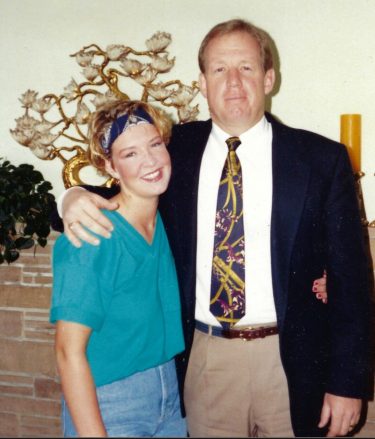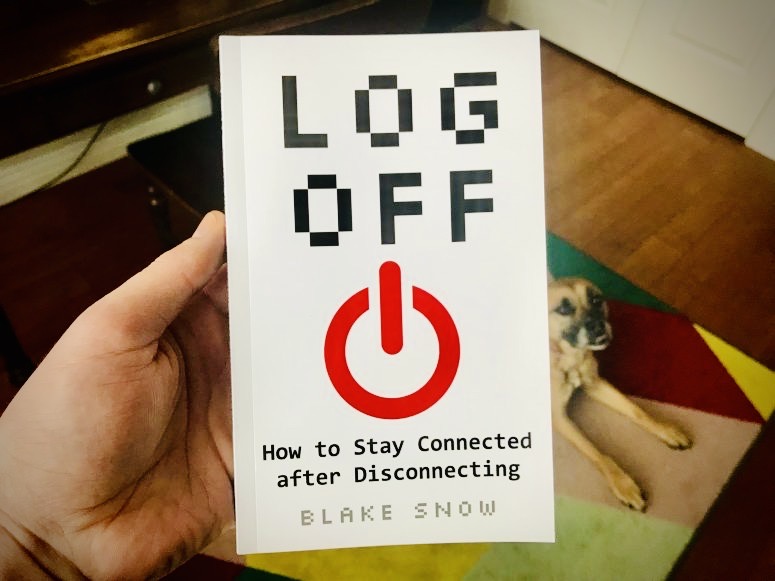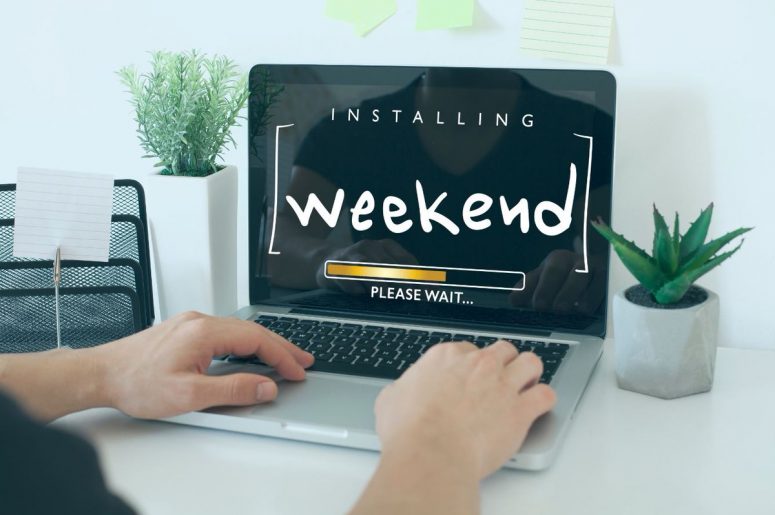
My dad with my oldest sister Cami
Dear, Dad.
Although you’re technically dead, I still believe you’re alive somewhere. After all, you taught me to believe in an afterlife, and I still do. So thanks for putting me on the path of faith, moral redemption, and hope after death. And for doing it in a way that was never dogmatic but wise and open to the possibility that you didn’t really know. I respect that immensely.
It’s been two years since you died. I read years ago that it’s healthier to say “die” instead of the more ambiguous “passed” or “no longer with us.” So if I sound harsh, it’s for good reason. No sense beating around the bush. You’re dead. I miss you. End of story.
I don’t know if you can hear this. I’m guessing not, because I’m not comfortable with the idea of being watched, listened to, or otherwise spied on by the deceased. We all need our privacy, right!? But I hope if there is a way, you still get this message. Continue reading…

It’s been half a decade since I published my first book, Log Off: How to Stay Connected after Disconnecting. It sounds melodramatic, but that little book changed my life. I owe so much to the stories and research contained inside, as well as the rippling effect it created after publication.
Five years later, here are five things I learned after publishing the book: Continue reading…

Courtesy Shutterstock
According to widespread reports, most people look forward to taking two days off at the end of the week. Not everyone does, though. These are their stories.
Humanity loves weekends for a variety of reasons. Topping the list: Sleeping in, unstructured free time, and a higher chance of leisure, extra-curricular activities, and social encounters with friends and family.
But not everyone is a fan of weekends. Although I was unable to locate any published research or studies on the percentage of people who dislike weekends, I recently interviewed over two dozen Americans who self-identify from that group. This is what I learned.
Work is the biggest reason
The vast majority of people I spoke to—well more than half—blamed an obsession with work as the reason for hating weekends. Most claimed to be self-prescribed “workaholics” and didn’t like to see their progress slow to a crawl for a couple of days while the rest of the world checked out and remained largely unreachable.
“I’ve always felt that people use weekends as an excuse to be lazy,” says Hope Alcocer, an “overly caffeinated” marketer from Chicago. “Your motivation and momentum is stunted as you hold your breath and wait until Monday. I understand the need for work-life balance, but I’m unsure who decided that two full days is required for such a thing.”
Milana Perepyolkina, a therapist from Salt Lake City, cites an aspirational lack of purpose when she’s not working. “During weekends I don’t feel like I’m making the world a better place,” she says. “The only way to change my displeasure of weekends would be to fill them with appointments with people in need of help,” which is difficult to do, she adds, because most of her patients don’t want to see doctors on weekends.
In general, the temporary idleness or lull of the weekend is distressing for some. “I don’t like to be bored, and I find myself getting bored on the weekends with too much free time on my hands,” says Beth McRae, a publicist from Phoenix. “Weekends just feel less productive,” adds Amanda Lauren, a freelancer from Los Angeles. “That stresses me out and then I feel really guilty about not working.” Continue reading…

Courtesy Shutterstock
The following expert from Log Off: How to Stay Connected after Disconnecting was cited by a recent reader as their favorite passage in the book:
People want their lives to have meaning. They don’t want a third of it (i.e., the ideal time spent working) to be spent in vain. So we delude ourselves into thinking that our work has some cosmic purpose to justify working more hours, which, on the surface, would suggest more importance. But quantity is not the same as quality. If I’m really being honest, my epitaph should read: “Occupation: Helped companies sell more widgets and advertising with written words.” None of us are that big of a deal. Yes, industry and economy are an important endeavor. But it’s not as important as sharing a smile with someone, realizing your child will be smarter than you, feeling insignificant amid a majestic landscape, experiencing and nurturing true love, finding your groove, watching an underdog upset the establishment, catching a wave, or eating a homemade chocolate chip cookie. The sooner we accept our dispensability and nothingness, the sooner we’ll rightfully fill our lives with greater, more qualitative meaning.
Thanks for reading. Happy Thanksgiving!
 Not only is 2020 the start of a new year, it’s the start of a new “roaring twenties” (hopefully one that doesn’t end in another Great Depression). That’s exciting–the new decade part, not depression.
Not only is 2020 the start of a new year, it’s the start of a new “roaring twenties” (hopefully one that doesn’t end in another Great Depression). That’s exciting–the new decade part, not depression.
Regardless of what greater society elects to do, I’m here to tell you that individual people can change. Granted, a lot of people try and fail to change, especially in January. But that doesn’t mean the rest of us are incapable. It just means change is hard.
It’s easier, however, if we make small, daily choices that can have a big impact on our future prosperity, health, and fulfillment. For example, here are 10 simple things you can do on a daily basis to improve your future and slay the next decade of your life. Continue reading…

Me hiking the Inca Trail
Here’s something you might not know about my work as a writer: 30-40% of my time is spent asking people if I can write for them, while the remaining 60-70% is spent on actually writing.
In other words, I’m either a writer who knows how to sell or a salesman who knows how to write. Consequently, I would’t have survived the past 15 years if I hadn’t asked thousands of people each year to let me write for them. I would have wilted long ago had I listened to the few rouge naysayers that rudely tell me to get lost sometimes.
Case in point: of the hundreds of emails I send on a monthly basis, the vast majority are ignored. Continue reading…





 Not only is 2020 the start of a new year, it’s the start of a new “roaring twenties” (hopefully one that doesn’t end in another Great Depression). That’s exciting–the new decade part, not depression.
Not only is 2020 the start of a new year, it’s the start of a new “roaring twenties” (hopefully one that doesn’t end in another Great Depression). That’s exciting–the new decade part, not depression.